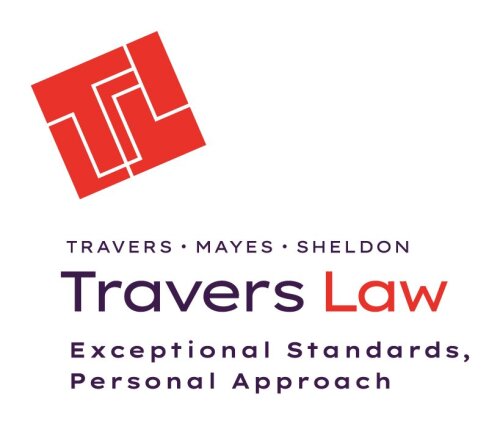Best Collaborative Law Lawyers in Waterloo
Share your needs with us, get contacted by law firms.
Free. Takes 2 min.
Free Guide to Hiring a Family Lawyer
List of the best lawyers in Waterloo, Canada
About Collaborative Law in Waterloo, Canada
Collaborative Law is an alternative dispute resolution process where parties resolve family law issues outside of court with the assistance of specially trained lawyers and other professionals. In Waterloo, Ontario, Collaborative Law has become an increasingly popular option, especially in family matters such as separation, divorce, child custody, and financial settlements. The process is voluntary and is designed to promote cooperation, respect, and open communication to achieve a mutually satisfactory agreement.
Why You May Need a Lawyer
People typically seek a lawyer experienced in Collaborative Law for the following reasons:
- Amicable Divorce or Separation: When both parties wish to avoid the stress and adversarial nature of court proceedings.
- Parenting Agreements: To create child custody and parenting time arrangements that work for both parents and are in the best interest of the child.
- Division of Property and Finances: Addressing complex property or asset division without litigation.
- Support Arrangements: Establishing fair spousal or child support agreements.
- Maintaining Family Relationships: When parties wish to preserve a civil relationship for effective co-parenting or future interactions.
- Privacy and Confidentiality: Keeping family matters private, as Collaborative Law discussions are confidential and not part of the public record.
- Mitigating Costs: Court battles are expensive; Collaborative Law can save money in the long run by streamlining the resolution process.
Local Laws Overview
Collaborative Law in Waterloo, Ontario, operates within the framework of Ontario’s family law statutes, such as the Family Law Act and the Children’s Law Reform Act. The process is governed by the principles of voluntary participation, full financial disclosure, and a legally binding "Participation Agreement" signed by both parties and their collaborative lawyers.
Key aspects to consider include:
- Trained Professionals: Only lawyers with specific Collaborative Practice training are qualified to represent clients in this process.
- Participation Agreement: If either party decides to leave the collaborative process, both collaborative lawyers must withdraw, and new legal representation is needed for court processes.
- Interdisciplinary Teams: Often, other professionals such as child specialists, financial advisors, or counsellors are involved to help reach the best outcome.
- Legal Standards: Agreements created must still comply with Ontario law to be enforceable in courts if needed.
- Enforceability: Once agreed and signed, collaborative settlement agreements can be legally binding and enforceable.
Frequently Asked Questions
What is Collaborative Law?
Collaborative Law is a process that allows people to resolve legal issues, most commonly in family law matters, without going to court. Both parties work with their lawyers and, if needed, other professionals to reach a mutually satisfactory agreement.
How is Collaborative Law different from mediation?
While both processes avoid court, in Collaborative Law each side has their own specially trained lawyer present throughout, whereas mediation usually involves a neutral third-party mediator and may or may not involve lawyers during the sessions.
Do both parties need to agree to use Collaborative Law?
Yes. The process is entirely voluntary and requires the agreement and cooperative spirit of both parties to be effective.
Are the agreements made in Collaborative Law legally binding?
Once an agreement is reached, it can be put into writing and signed by both parties. Agreements can then be filed with the court to make them legally binding and enforceable under Ontario law.
What happens if the collaborative process breaks down?
If either party decides to stop the collaborative process, both collaborative lawyers must withdraw from the case. New lawyers must be retained if the case proceeds to court.
How long does the Collaborative Law process usually take?
The timeline varies depending on the complexity of the issues and the parties’ willingness to cooperate. Generally, it can be significantly shorter than a litigated court process.
Is Collaborative Law more affordable than going to court?
In many cases, Collaborative Law is less expensive than litigation due to reduced court appearances, shorter timelines, and shared professional resources, such as financial experts.
Are discussions during the process confidential?
Yes, discussions, disclosures, and negotiations are confidential and cannot be used as evidence in court if the collaborative process does not result in an agreement.
Can children be involved in the Collaborative Law process?
Children do not directly participate, but child specialists or family professionals may be part of the team to ensure the children’s best interests are central to any agreement.
How do I find a Collaborative Law lawyer in Waterloo?
Seek lawyers who are members of Collaborative Practice organizations or who specifically note expertise and training in Collaborative Family Law. Professional directories and local law societies can provide referrals.
Additional Resources
If you are seeking more information or support in Collaborative Law in Waterloo, consider the following resources:
- Waterloo Region Collaborative Family Law Association: Offers information on the collaborative process and a list of trained practitioners in the region.
- Ontario Collaborative Law Federation: Provides resources, practitioner directories, and information about the process province-wide.
- Law Society of Ontario: Helps you find qualified lawyers and provides information on family law in Ontario.
- Family Law Information Centres: Operated by the Ontario government, offering free resources at local courthouses.
- Legal Aid Ontario: May provide support for those who qualify financially.
- Community Legal Clinics: Local organizations that assist with family law matters for eligible individuals.
Next Steps
If you are considering Collaborative Law to resolve a family matter in Waterloo, Canada, here are some recommended steps:
- Research local Collaborative Law professionals and reach out to schedule a consultation.
- Prepare a list of questions and gather any relevant documents before your first meeting.
- Discuss your goals and concerns openly with your chosen lawyer to determine if Collaborative Law is right for you.
- If you and the other party agree, sign a Participation Agreement to start the collaborative process.
- Engage with other professionals-such as financial or child specialists-as needed.
- Work together toward a mutually satisfactory resolution, aiming to cover all necessary family and financial matters.
- Once an agreement is reached, have your lawyer review and formalize it so it is legally binding under Ontario law.
Lawzana helps you find the best lawyers and law firms in Waterloo through a curated and pre-screened list of qualified legal professionals. Our platform offers rankings and detailed profiles of attorneys and law firms, allowing you to compare based on practice areas, including Collaborative Law, experience, and client feedback.
Each profile includes a description of the firm's areas of practice, client reviews, team members and partners, year of establishment, spoken languages, office locations, contact information, social media presence, and any published articles or resources. Most firms on our platform speak English and are experienced in both local and international legal matters.
Get a quote from top-rated law firms in Waterloo, Canada — quickly, securely, and without unnecessary hassle.
Disclaimer:
The information provided on this page is for general informational purposes only and does not constitute legal advice. While we strive to ensure the accuracy and relevance of the content, legal information may change over time, and interpretations of the law can vary. You should always consult with a qualified legal professional for advice specific to your situation.
We disclaim all liability for actions taken or not taken based on the content of this page. If you believe any information is incorrect or outdated, please contact us, and we will review and update it where appropriate.










